#gorgeous forgotten american singer/actress
Photo
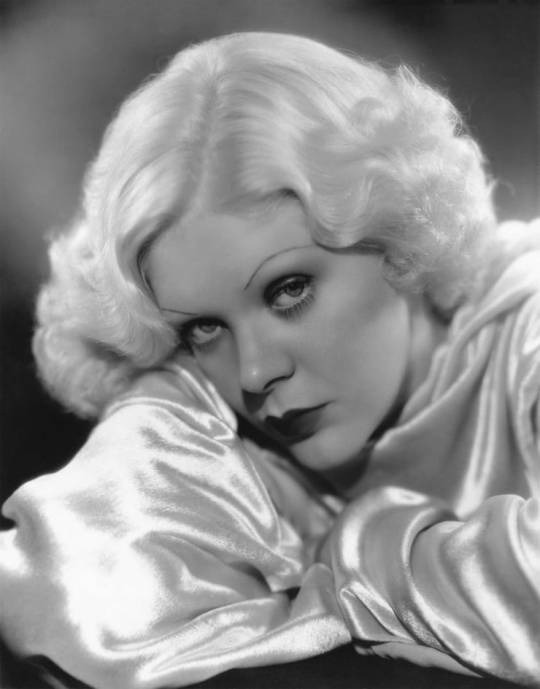
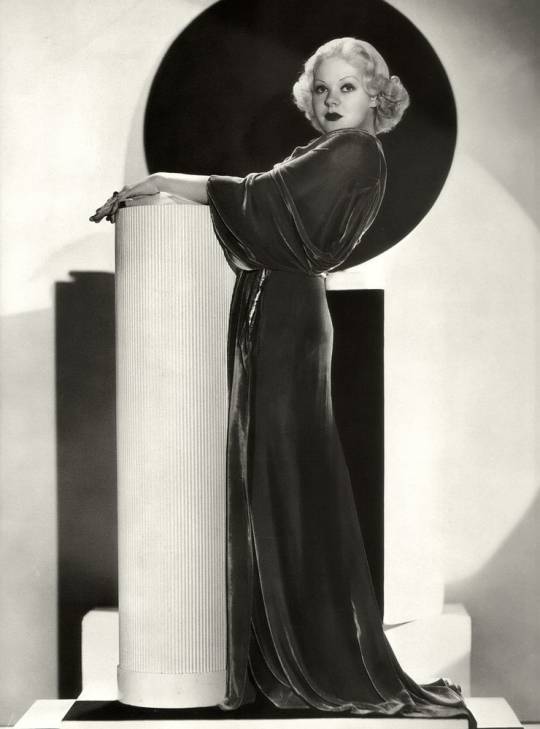
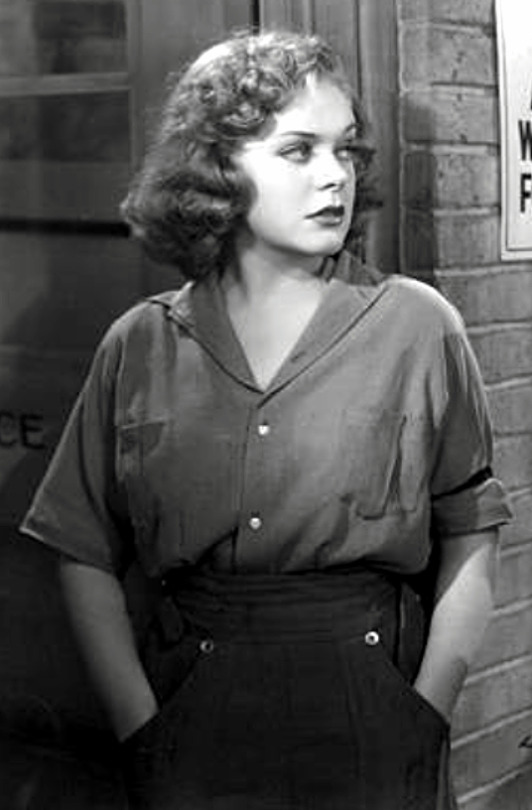
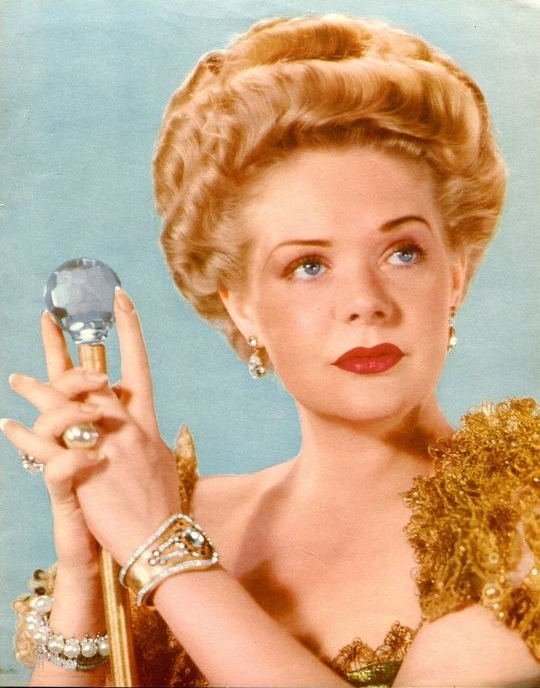

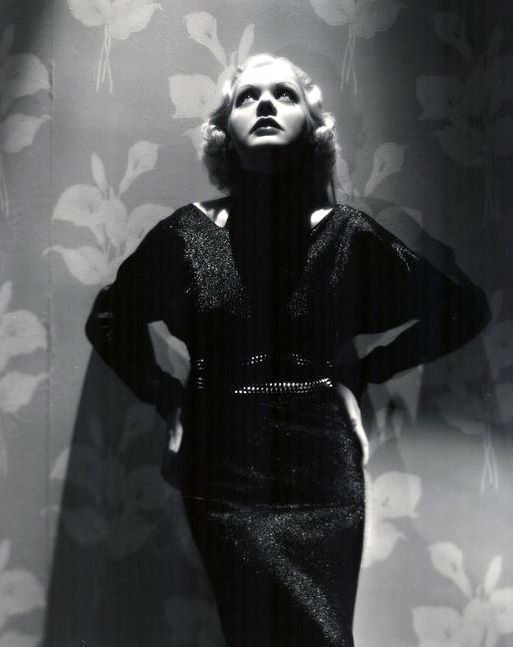
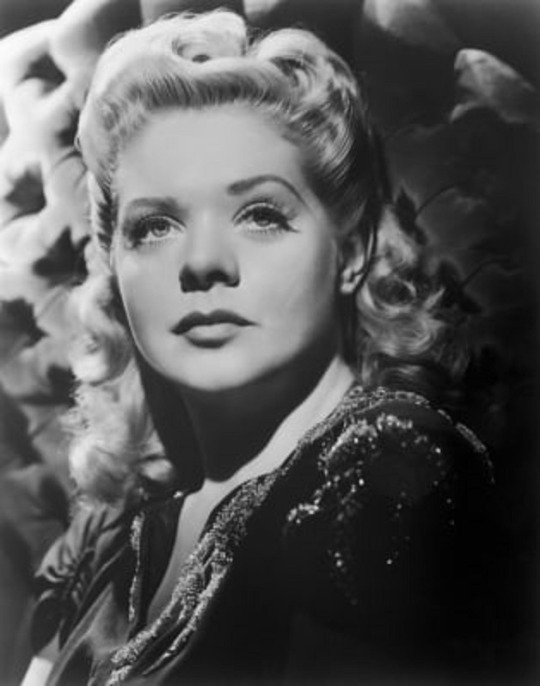
Happy Birthday To Gorgeous Forgotten American Singer/Actress Alice Faye
(Born 5th May 1915)
Pics Sources: Listal.com - Bing Images - Famousfix.com
#alice faye#birthday girl#born 5th may 1915#gorgeous forgotten american singer/actress#alice rose from the mean streets of new york's hell kitchen to become the most famous singing actress in the world#trade marks: blue-eyed blonde - sexy contralto voice - often played gritty no-nonsense ladies#appeared in 6 films with carmen miranda#appeared in 2 george white scandals (1934 & 35)#best remembered for her roles in sing baby sing - king of burlesque (both 1936) - tail spin (1939) - lillian russell (1940)#also remembered for sally irene and mary (1938) - tin pan alley (1940) - weekend in havana (1941) - state fair (19620#only 37 ating credits#years active 1934-45 & 1962 & 1976-1980#singing in films from 1934-78#old hollywood musicals#old hollywood#pics sources: listal.com - bing images - famousfix.com
29 notes
·
View notes
Text
My Top Performances of 2019, Part 2
Here is the second half of the list of my favorite film performances of 2019. I tried to be as objective as possible, but it’s also a result of personal preferences. As before, the order is unimportant.
Part 1 is here: https://ryanmeft.tumblr.com/post/190668845597/my-top-performances-of-2019-part-1?fbclid=IwAR3_d80vj0FbIVXqWaTV1heUlIDJJmL-JB_ZksaadO_oNRztnhBMICxzTd8

Zhao Tao in Ash is Purest White
She’s got everything you could want in a rusting former industrial town: a good boyfriend who has influence in the area’s small underworld, which gives her power, love and money all at once. In a blink it is all gone, and she finds herself adrift in the world, dealing with the resentments of people with no patience for what she has gone through. Tao is the key component of this crime drama, which is more drama than crime. She does not take the world in blazing force as a crime figure in a Scorsese film might do, but quietly and slowly accepts that the days of her power are past---and unlike the men around her, tries to adapt to, rather than battle, the inevitable.
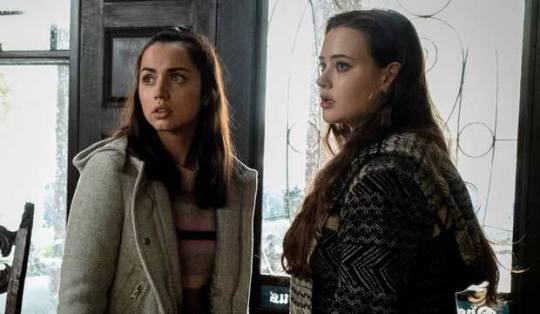
Ana De Armas in Knives Out
Knives Out is in the grand, disappearing tradition of the character actor, albeit with the parts mostly played by superstars. Yet among a roster that includes Captain America as an irresponsible playboy and Michael Shannon as a professorial-looking semi-Nazi, De Armas’s humble heroine Marta stands out. Maybe it’s because Marta is humble but not naive or entirely innocent, and De Armas manages to capture both her cunning and her honesty without turning her into a doe-eyed victim. She’s the kind of character you want to become a Nancy Drew-esque mystery hero for adults, so you can revisit her later adventures.
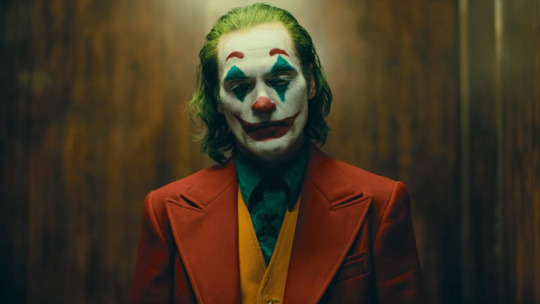
Joaquin Phoenix in Joker
Some hated the movie, some loved it, but one thing it seems everyone could agree on is Phoenix’s performance. He’s credited as Arthur Fleck, not as Joker, and his handling of the character couldn’t be more different than any previous portrayal. Arthur is sad and lonely, not at all an enigma---his private life is laid out for us in great detail---and Phoenix portrays him as just sort of being blown through the world, bereft of any real agency. You can debate all day whether the character deserves to be portrayed in a sympathetic way, but you can’t say Phoenix doesn’t pull it off, making us root for this maladjusted, societally-forgotten misfit almost up ‘till the end.

Sienna Miller in American Woman
In a just world, Miller, hardly a household name, would have her face up on the stage Sunday night for playing this role, a drunken, hard-partying too-young mother and grandmother whose life begins to change when her daughter disappears. I say begins to, because this is not one of those magical stories of miraculous redemption. Debra does not become a good parent to her grandchild right away, and never becomes a great one. Instead, the film follows her throughout years of her life, during which, naturally, she must go on living as she mourns. Miller embodies each stage of this perfectly, never once allowing drama tropes to disturb her unflinching portrayal of an ordinary life.
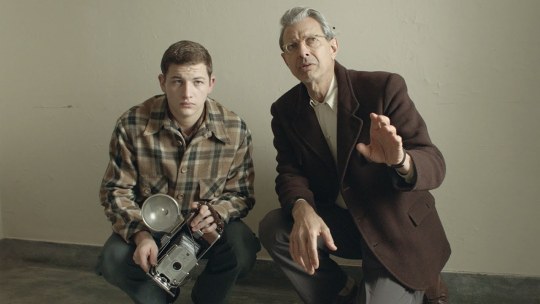
Jeff Goldblum in The Mountain
What does the word “monster” conjure for you? Whatever traits it brings to mind, they are all present in Dr. Wallace Fiennes. He’s an egotistical, self-interested, callous man who performs lobotomies on mental patients in the 1950’s American heartland, the kind of person for whom his gruesome practice is not an outmoded method to be improved on by advancement, but an art form in itself, and his patients merely the canvas. This isn’t handled like a horror movie: Goldblum is not a mad scientist cackling away in a lab, but an urbane, cultured, engaging professional---which makes him all the more frightening.

Gugu Mbatha-Raw in Fast Color
Wonder Woman and Captain Marvel were, to a large extent, a marketing department’s ideal female superheroes: always flawless, gorgeous even when kicking ass, unable to make any very serious mistakes. Ruth is very much not that. She’s living wherever she can, dealing with the effects of past addictions, running from the government, scared of her own powers. She’s not just unlike any other woman in tights (without the tights), she’s unlike any mainstream superhero ever has, can or will be. Mbatha-Raw is one of our most underrated actresses, and she portrays Ruth in a way that allows us to both sympathize with her plight and support her as she grows stronger. The movie’s not getting a sequel, because the Hollywood franchise machine isn’t ready for imperfect superheroes yet, but it is getting a series, so at least we’re getting more of Ruth in some medium.
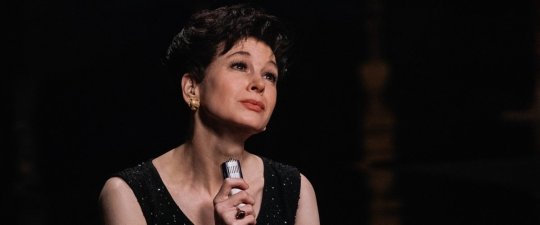
Renee Zellweger in Judy
I won’t pretend I knew much about Judy Garland going in, and frankly I’m not sure I understand her after seeing the movie---it was, in most respects, a fairly typical music biopic. Where it broke the mode is in Zellweger’s performance. I think it’s fair to say the once-household name has been largely forgotten by Hollywood in recent years; she never had the perfect starlet looks or the ideal girl-next-door adorableness that is the main standard on which women are judged. But she had the acting chops, and here she finally gets to prove it. Her Garland is twisted and gnarled inside and out by years of sexist treatment and the resulting substance abuse, but still a loving mother to her children and a great singer---and justifiably angry at the industry that used her up and spit her out.

Paul Walter Hauser in Richard Jewell
There was never a single chance of seeing the camera pan to Hauser during Sunday’s roll call of acting nominees---both he and the person he plays are about the polar opposite of Hollywood’s image of itself. And it must be said that while Jewell should not be forgotten, Eastwood’s movie, with its ginned-up anti-press narrative, maybe should be. But none of that is on Hauser, whose performance firmly proves that fat guys can be more than bumbling comedic relief or ineffective sidekicks in the movies. It matters that someone who looks like Jewell is portraying him, and that he does it so well that we can almost overlook the film’s other faults.
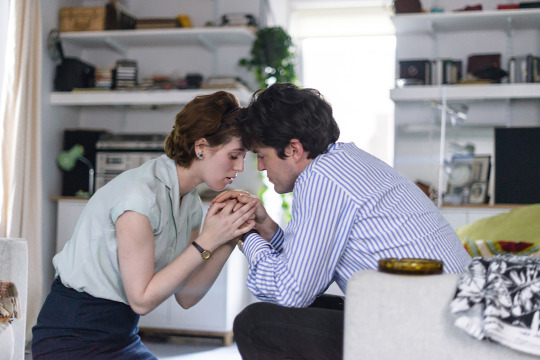
Honor Swinton Byrne in The Souvenir
This one was little-seen, and though it generated awards buzz initially, it’s already been largely forgotten. That’s too bad. Byrne’s Julie is a woman torn between her own ambitions and her love for a man who is---abusive? How to judge him? It’s a toxic relationship fueled by addiction on his part, but the movie is more about how you cope with a partner who is committed but not capable of commitment. Perhaps the most resonant aspect of Julie’s character is the way she holds out hope even when everyone tells her not to, even when she herself knows deep down that it is hopeless. You may find this weak, but I’ve never known a human being who wasn’t in some measure susceptible to it.

Jonathan Pryce and Anthony Hopkins in The Two Popes Everyone has strong feelings about the Catholic Church---it’s not a thing you go half-measures on. And every Catholic has strong feelings about the last two Popes---again, they aren’t the kind of personalities that inspire milquetoast reactions. What Pryce and Hopkins do in portraying Francis and Benedict, respectfully, is remind us that no matter how much they claim to be the chosen of God, these are after all two men---two men with flaws and opinions, whose own lives have shaped them every bit as much as the Bible or the church. When they are on screen together, you can imagine them in an odd couple buddy comedy, two aging road trippers tending to the flock. Lots of performances didn’t make my arbitrary 20-point cutoff. To be dead honest with you, it’s entirely possible that if you ask me in a year, I’ll have re-considered who is on the main list and who is in the honorable mentions; the idea that what I say now, when all these movies are fresh in my mind and affected by immediate emotional reaction, has to be my inviolate opinion for all time is silly.
That said, here are some excellent and noteworthy performances that didn’t quite make the cut.
Leonardo DiCaprio and Brad Pitt in Once Upon a Time in Hollywood
Kelvin Harrison, Jr. in Waves
Zack Gottsagen in The Peanut Butter Falcon
Isabela Moner in Dora and the Lost City of Gold
Alessandro Nivola in The Art of Self-Defense
Cate Blanchett in Where’d You Go, Bernadette?
More or less everyone in Little Women (I couldn’t decide, and thought more of the acting than the overall film)
Jodie Turner-Smith in Queen and Slim
Cynthia Erivo in Harriet
Kaitlyn Dever in Booksmart
Edward Norton in Motherless Brooklyn
#Joaquin Phoenix#ana de armas#renee zellweger#jeff goldblum#movies#jonathan pryce#anthony hopkins#leonardo dicaprio#brad pitt#once upon a time in hollywood#Quentin Tarantino#judy garland#knives out#rian johnson#cate blanchett#richard linklater#the peanut butter falcon#zack gottsagen#isabela moner#dora and the lost city of gold#Alessandro Nivola#the art of self-defense#kelvin harrison jr.#waves#little women#jodie turner-smith#queen and slim#cynthia erivo#harriet#Edward Norton
30 notes
·
View notes
Text
Top 10 Films of 2018
This is rather delayed (mainly on account of an extended bout of laziness on my part), but I was still determined to get it out there! While I don’t think 2018 quite reached the heights of 2017 (nothing matched The Last Jedi or Blade Runner 2049, for example), there was still a lot of great cinema.
As always, keeping this list at 10 meant I had to omit some great titles. Just so you get an idea of what I had to leave out, here are some honourable mentions: Eighth Grade, Lady Bird, Revenge, Phantom Thread, Thoroughbreds, Lean on Pete and Game Night.
1. Roma, dir. Alfonso Cuarón
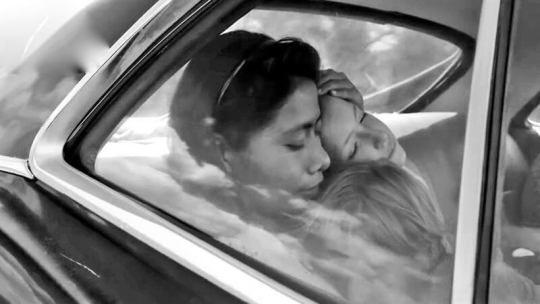
Roma is a deeply special film, and I’m very fortunate in having got to see it in the best possible circumstances - projected on a huge cinema screen, with its gorgeous, silvery cinematography a marvel to witness. This film takes the kind of life that would usually be forgotten and turns it into an epic, interweaving the story of a loving, resilient housemaid with the seismic political events unfolding in Mexico in the early 1970s. The shots are highly symmetrical and geometric, with characters passing in and out of pre-established frames. But this is clearly intentional, and - to me at least - the story felt no less personal for it. There are several all-time great scenes in this film, and while I don’t want to spoil any of them with extended descriptions, I will say that there’s a sequence in a hospital that balances the mundane and the monumental in an extraordinary and heartbreaking way. This is breathtaking, masterful filming, and I felt it did justice to Cleo’s life without ever attempting to claim her experience. The film is quiet and the dialogue is almost perfunctory, relying heavily on its visuals - it’s cinema at its purest.
2. Annihilation, dir. Alex Garland
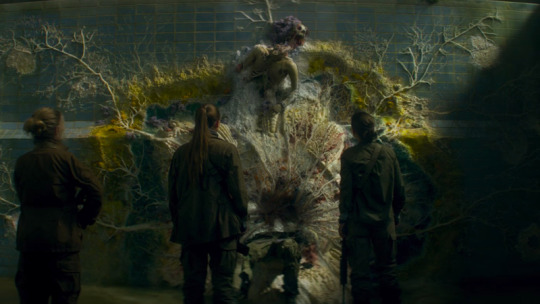
True story: I was so desperate to see Annihilation in a cinema that I flew to New York for it. Of course Annihilation wasn’t my sole reason for travelling to New York, but you can be damn sure I made a point of tracking down an Alamo Drafthouse that was showing it. And boy was it worth it. This movie does a magnificent job of fulfilling the potential of sci-fi, taking otherworldly concepts and ideas and using them to interrogate some of the most profound and frightening truths of what it means to be human. This movie has a quietly hypnotic quality to it, and Natalie Portman continues to prove that she is one of the finest modern actors - she says so much with her face and her movements that lines are hardly necessary. I will continue to follow Alex Garland’s career with great interest...
3. Beast, dir. Michael Pearce
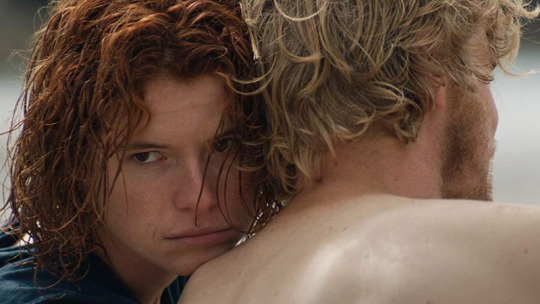
Beast was probably my biggest surprise in film in 2018 - I went in expecting nothing, and was bowled over by it to the point that I rushed out to see it again at the first opportunity. This film follows lonely outsider Moll and her ardent love for the mysterious Pascal. There is a heightened, almost supernatural, quality to their romance, and the actors - Jessie Buckley and Johnny Flynn - have electric chemistry. This film delights in playing with the viewer’s fears and suspicions, constantly adjusting them as the characters evolve over the course of the movie. It’s a great fusion of genres - mystery and romance - that also functions as a superb character piece, and it is entirely worth your time.
4. Bad Times at the El Royale, dir. Drew Goddard
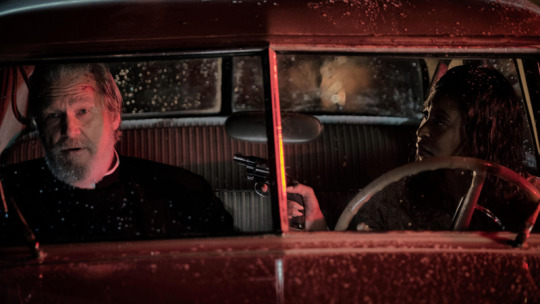
This film is bonkers in an amazing way. A bunch of seemingly random strangers gather at a hotel that’s far from its glory days, and it isn’t long before all hell breaks lose. The ensemble here is terrific, with all the cast members playing off each other in a succession of utterly delightful ways. Every character conceals a secret history and motive, with their layers gradually being peeled back as the movie plays out. Special mention must go to Cynthia Erivo, who is simply stupendous as a session singer who I wound up considering the film’s real hero - she’s marvellously charismatic and complex, and her voice is a complete wonder. This film is a messy tangle of mysteries, and I had a wonderful time unravelling them.
5. First Reformed, dir. Paul Schrader
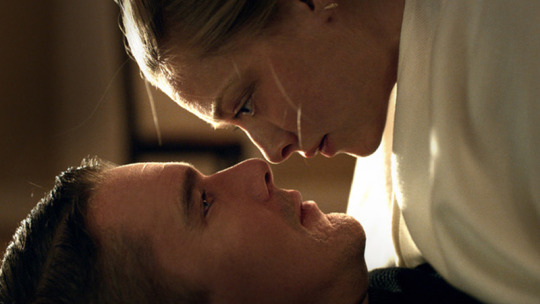
I have a weird soft spot for ‘crisis of faith’ movies (think Silence), and this is a very fine entry into that niche. Ethan Hawke is superb here as a priest attending to an old church that has effectively been reduced to a chintzy tourist attraction, and I found the depiction of how he struggles with his faith, overwhelmed by disillusionment and the immense crises facing the earth, fascinating and beautifully written. Schrader wrote and directed this film, and it is one of his greatest achievements - the dialogue probes deep, never feeling trite or obvious. I also appreciated how the spiritual was so often conflated with the personal, with a thin line drawn being drawn between the divine and the carnal (that end scene is a woozy thing to experience). It’s a beautifully judged film, made all the more fascinating for its ambiguity.
6. Won’t You Be My Neighbor?, dir. Morgan Neville
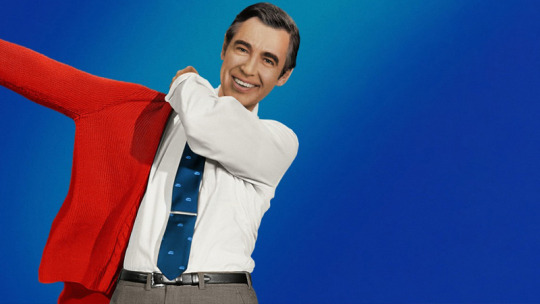
The greatest testament to the power of this wonderful, good-hearted documentary is probably that I went into it knowing practically nothing about Mr Rodgers (he just wasn’t a thing here in the UK) and left it thinking he’s the hero the world needs right now. I’ve seen so many documentaries illuminating the ugliest parts of humanity that I didn’t realise how much I needed one spotlighting the best bits. But this documentary isn’t pure sentiment, though there’s a lot of that - I found a lot to admire in Mr Rodgers approach to child psychology and education, particularly his conviction that every child can benefit from a warm, steady presence, even of the source of the reassurance happens to be trapped in a TV monitor. I can only hope this inspires a fresh wave of documentaries on similarly worthy subjects.
7. The Wife, dir. Björn Runge
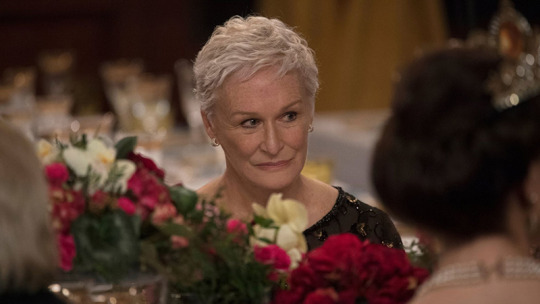
Glenn Close is coming for that Best Actress Oscar and no one can convince me otherwise. With The Wife, the whole movie transparently rests on the shoulders of one woman - Close’s performance is almost sphinx-like, being enigmatic and low-key to the point that her emotions are almost invisible. But their failure to manifest doesn’t mean they don’t exist, and that is perhaps the point of the whole movie. Joan Castleman might seem like the ideal wife of a great author, but she is revealed to be far more than that - a singular individual with dreams, passions, ambitions and regrets. Glenn Close makes the gradual reveal of each facet magnetic, to the point that the slightest twinges of her facial muscles become potent symbols.
8. Blindspotting, dir. Carlos López Estrada
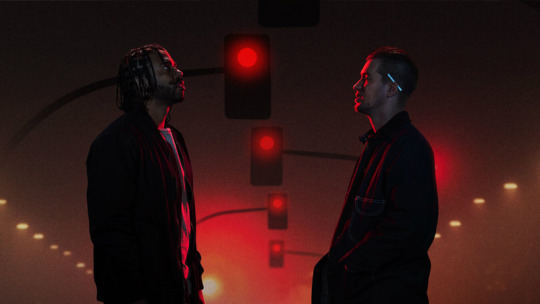
This is an urgent, gripping movie that tackles some of the biggest issues there are. Collin and Miles are friends, but this film sees their friendship challenged, the dynamics underlying it interrogated. I’ve seen movies described as “empathy machines” before, and Blindspotting is a great example of that. It sucks you into the day-to-day experience of living Collin’s life, whether he’s getting a window into the hang-ups of the people whose belongings he is moving (he drives a moving truck) or just chilling out with his friends. Alongside this, it also portrays how terrifying it is to live as a black man in America, how vanishingly little value appears to be placed on your life by those in authority. There’s a rap scene at the film’s climax that consolidates all of Collin’s rage and hurt, and it truly packs a punch.
9. American Animals, dir. Bart Layton
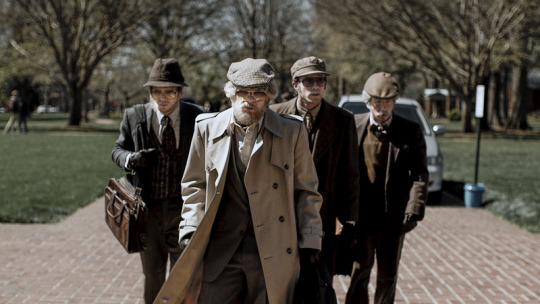
This film portrays a very different side to young American manhood from Blindspotting. Instead of living from day to day, the protagonists of this film start out with pretty much everything they could need - stability, support and good prospects. They choose to unsettle their existence by staging an outrageous heist, clearly dreaming of becoming legends and injecting excitement into their comfortable lives. American Animals does a fantastic job of pulling their plan apart, and since it was based on a true story director Bart Layton does something quite ingenious - he combines real interviews with re-enactments, the filmed scenes being switched out and adjusted according to the conflicting testimonies. In this way, American Animals becomes much more then a depiction of entitled young men seeking to mythologise themselves - it also functions as an interrogation of truth, and the myriad deceptive qualities of cinema.
10. Mission Impossible: Fallout, dir. Christopher McQuarrie
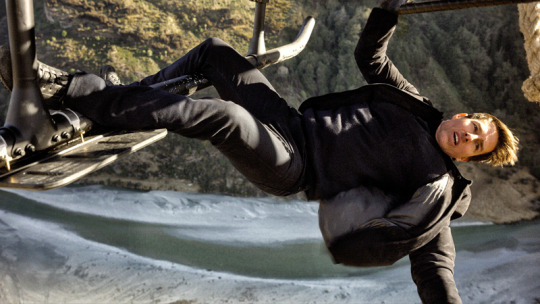
I have no idea how this franchise keeps on stepping up its game, but it does. It reminds me of how the James Bond films ended up taking Bond to space. I can see MI doing that at this point, except we all know that Tom Cruise would actually fly into space for it. With that prelude out of the way, I just need to stress what a fantastic action movie this is. The set-pieces here are marvellously staged, and their execution made them absolutely gripping - I was anxious over every punch, flinching at every cracked bone. McQuarrie is a true master of tension and suspense, and the movie was simply a magnificent ride. I was lucky enough to see this in IMAX with @bastila-bae, and the mere thought of people watching this on smartphones fills me with the rare kind of sorrow known only to shameless film snobs.
Look out for highlights from 2019 - coming up in a few months!
#roma#film#cinema#movie#movies#film in 2018#review of 2018#annihilation#beast#first reformed#blindspotting#mission impossible:fallout#american animals#bad times at the el royale#personal#the wife#won't you be my neighbor
126 notes
·
View notes
Text
Blast from the past, when Bernadette was a bit more talkative in her interviews (Boston Globe, Dec. 1981)
*****************
It's 10:30 a.m. and Bernadette Peters, whose tiny frame is wrapped in a pink silk robe, spills out of the bedroom of her suite, wet curls framing her renaissance face. She has stepped from the shower to the interview.The shower was still running. But Steve Martin, wearing make-up, left this message: He's going back to bed. He had to get up for a too-early television appearance. He's tired.
Meanwhile, a maid armed with a vacuum cleaner is humming through her chores. An agent is on the phone, something about the sensational Bernadette Peters pictures in Playboy. And here she is, this little Botticelli blonde, mischief glinting in her eyes, gliding in the room. "Ta-ra! I'm here! Ta-ra!" She continues a pirouette that is simultaneously elegant and slapstick, then flops into a corner of the couch. The photographer, anxious to freeze the action, instantly follows her with his lens.
The questions you would most like to ask Bernadette Peters are questions she has already asked herself. All you have to do is be a good listener, guiding the conversation gently, preventing it from wandering, considering what she says with your heart as well as your ear.
Bernadette Peters is from a Sicilian family of bakers from Queens. Manhattan is home. Her family name is Lazzara. Only now, at the Carlyle, you have to be announced. You have to be on her list of visitors to be accepted into her suite.
She has never married. What is her passion?
It's her work, her career, developing her talents. She is an actress, a dancer, a singer, a flamboyant female whose delicate aura is disarming, misleading. She is not a helpless vanilla creature. She is a small but powerful bundle of dynamite, a woman not in full bloom but exploding with ambition.
It was always this way.
She started singing and dancing as a child in a TV program, "The Children's House." As a teenager, she appeared in the Bowery Lane Theater. Audiences loved her. So did one of her discoverers, Carol Burnett, who had her as a guest frequently on "The Carol Burnett Show."
Norman Lear also "discovered" her when she appeared in a Los Angeles stage tribute to the late George Gershwin. Lear offered her a guest role in "Maude," which led to the CBS-TV series, "All's Fair."
When Bernadette Peters was 19, she appeared in an off-Broadway musical spoof, "Dames At Sea." She got rave reviews. Then she appeared in a revival of "On The Town." Raves again. And a Tony nomination. More raves for her appearance in the doomed David Merrick's play, "Mack & Mabel," and a second Tony nomination.
One important thing you've got to understand about Bernadette Peters.
She has had her ups and downs.
She's unstoppable.
"Yuck, safe is boring. I want to grow. You want to know what creativity is? It's tapping places you didn't know, places you didn't know existed inside you. I am very distinctive looking. You want to know something? It's very limiting looking the way I look. When I started in show business, I wanted to get a job, any job, so I auditioned for the chorus. Nobody hired me to be a chorus girl. I stuck out too much. I didn't blend. Know what they wanted? They wanted a California sunshine orange-juice kid. I didn't look like, hey, your well-scrubbed typical American teenager.
"Know what I did? I straightened my hair, one of those blunt cuts. I wore collegiate clothes. But my hair was too hard to deal with, all natural curls. And I didn't like the clothes. So I said: The hell with it.' I said: I am going to be myself.' I said: This is what I am and this is it.' See, I didn't care by then. I wasn't getting work the other way so I decided to be myself. That takes guts. But there's only one of you in the world, so you might as well be the best you can be. Right?
"Being an individual is the most important thing in the world. I should have done it all the time. I thought a lot about myself before being myself. Maybe that was a good thing. It made being individual less scary. Individuality is a great release, don't you think? It frees you. You don't have to scrunch into somebody else's idea of you, a mold. Know what? I'm trying more and more to be me.
"It's a matter of stripping away your fears, one-by-one. We are all layered in fears and they've got to be pulled away. It's like counting backwards from 10 - 10, 9, 8 . . . As the numbers get lower, the peeling away gets easier. You get more and more courage to be yourself. The disappearance of each layer is the very thing that gives you courage.
"I was very insecure. Insecurity is poison. It's like wearing chains. It prevents you from going anywhere. It gets so it becomes hard to meet people, just to say, Oh, hello there!' You know what I mean?
"When I was a kid growing up in Queens, I studied Hollywood. I'd hear on the television that so-and-so was getting a divorce. Hollywood meant divorce. Hollywood meant a lot of diamonds and a lot of gowns. Hollywood meant nothing real. But all the time I wanted to be a star, a Hollywood star, but the old myths stuck in my mind. Those myths became my insecurities.
"Guess what happened? I said to myself: If you have a good car, a good home, nice things - is it going to change you?' And then I said to myself: No, no, no, you earned it. So I decided I deserved whatever my success brought. And layer No. 10 of my insecurities was gone! Peeled away!"
"I'm very strong. Can you tell that I am strong? Well, for a long time, I denied my own strength. I had this real fear of aggression. Know what I did? I played the typical feminine role. Helpless. Flighty. I figured a man is strong and a woman satellites around her man. I tried to tell myself that women are not strong. But underneath I was strong, very strong, and I allowed my strength to surface. How did I do it? I started making one decision, then another, and still another. Then I was making a lot of decisions and I was happy with those decisions. And I began enjoying the results of my decisions. That-- 9 of insecurity gone! Poof!
"I still look fluffy, don't I? Oh I know that. But I can change. You haven't forgotten that I'm an actress, have you? No? Well, there are such things as make-up. And wigs. I can change. The thing is that the more you assert yourself, the more you express yourself, the more people hear you. It's all attitude. It's not necessarily the way you look! It's all in being yourself. No, it's more than that! It’s the way I am.
"Want to know what my big dream in life is? I don't have a five- year plan, a 10-year plan. I don't have specific objectives. My dream is to grow, to be the best that I can be. I want to be proud of my work. Maybe marriage. Maybe kids. I said maybe. Then my other dream is to be self-assured. Not to have fears that I can't conquer. I am still haunted by fears, little ones. Oh, I'm shy. I can't make myself say, Hello' to a stranger, even if the stranger is someone I think I'd like to know. You want to know what I do? I practice saying hello to strangers.
"I'm terribly shy. Acting is a great outlet. On stage, I don't have to worry at doing and saying. In real life you have to worry, yes. You ask yourself: Have I spoken when I should not have spoken?
"My mother always told me I was beautiful. I didn't believe her. I didn't like what I saw in the mirror. I didn't think I was pretty enough or thin enough or popular enough. That was another layer of insecurity, something to be peeled away.
"Now I think I am distinctive looking, different looking. I don't think I am gorgeous. At least not in terms of what society thinks is gorgeous. When I love somebody, I love the person that the person is. I love Walter Matthau. To me, he's handsome because of the way he is, not the way he actually looks."-
"I had another hangup, still another insecurity that had to go. I thought that being a success meant that you had to stab someone in the back. The words, career-oriented and ambitious - I used to be afraid of those words. I used to call those words the back-stabbing words. Well, now I know. Having a career is not being bad. You did not have to step on or over anybody. Look, I got here in spite of myself. I got here despite all my drawbacks, all my insecurities. Why? Because I don't think of myself in terms of insecurity anymore.
"If I hear that someone doesn't like me, I say: Oh, they'll change their mind in the future. Later they'll like me. In two or three years, I'll do something that will make that person like me. I've been hired by people who said, before, that they didn't care for my work.
"I've established myself. I know part of this business is rejection. But I know a lot about myself. I can't live in a suburb. I know that just raising a family isn't enough. I've tried to knit. I don't like to knit. I've tried to sew. I made my graduation dress and, gee, I almost had to wear it. It was bad! I hate to crochet. But I love to act. And I act when I sing. When I'm on stage, when I do something exceptional, something I've never done before, I feel I've been someplace I've never been. And it's all happening inside me."
#bernadette peters#broadway#broadway baby#broadway legend#1980s#her old interviews are always so insightful#determined and kind#i just admire her so much
25 notes
·
View notes
Text
Hong Kong stars steal show (1999)
by special correspondent Monty DiPietro
* excerpts *
Chinese box-office hit elevates Hong Kong’s cultural image
Perhaps, it should not have been a surprise at all. For years, Japanese have shown a keen interest in Asian languages as, in many ways, the image Japanese had of the rest of Asia continued its ever-quickening evolution - from boring to exotic and from backward to chic. Japan had begun to really look at its neighbours and liked what it saw. If enlightenment has an adversary it is the stereotype. For a long time, Hong Kong was regarded as little more than a cheap place to buy nice things.
Culturally, Hong Kong was widely considered a producer of low-budget kung fu films. But such impressions are now like old story lines, rejected and forgotten. It is difficult to determine exactly when or why the old stereotype died out.
The movie, Chungking Express, certainly helped elevate Hong Kong to the new cultural level of respect that it now enjoys in Japan. With its 1996 release under the Japanese title, Koi Suru Wakusei, or World in Love, the Wong Kar Wai film put a new face on Hong Kong pop culture. These days the film’s singer-actress Faye Wong is on the Japanese hit parade and plays sold-out concerts at the prestigious Budokan.
Tokyo film distribution company Prenom H is so confident of Wong Kar Wai’s appeal in the Japanese market that it pre-bought his most recent release, Happy Together. Retitled Buenos Aires in Japan, this gay love story set in Argentina was a massive silver-screen and video hit.
Meanwhile, the enthusiasm has enveloped other Hong Kong cultural exports. Fruit Chan’s Made in Hong Kong is one of this year’s most anticipated film releases.
In May, Japan’s biggest listings magazine, Pia, ran a seven-page spread that featured photos and biographies of the likes of Leslie Cheung, Tony Leung, Jordan Chan and 11 other new-generation Asian superstars. As far as the youth-driven Japanese consumer market is concerned, Hong Kong has definitely been discovered, and it is very cool. Japan is a country where trends catch on fast, and right now at least, it appears that anything Hong Kong creates a stir. The only losers in the game are those players who have not kept up with the changes in consumer preferences.
“Kung fu movies are basically dead in Japan, ” says film critic Sozo Teruoka. “Nowadays, kung fu movie fans make up a very small section of the market. Instead of patronising a cinema, they prefer to watch a kung fu video.”
Local characters on silver screen attract movie-goers
Even as interest in serious Hong Kong cinema is growing in the Japanese market, there remain some actors so popular as to be exempt from trends. The premier example is Hong Kong’s best-known cultural export - martial arts master, stuntman extraordinaire, and just-plain-loveable Jackie Chan. All of Jackie Chan’s releases are well received in Japan. There is a full-colour magazine to keep more than 3,000 dedicated Japanese members of his international fan club informed of the superstar’s activities. Fans are already awaiting Chan’s new film, Gorgeous, with great anticipation. One reason is that Tony Leung, the handsome star of Happy Together is appearing together with Chan. Although Chan is far and away the bigger draw, there will be more than a few young people buying tickets to see Leung, who is incredibly popular with Japanese audiences. His inclusion in the cast of Gorgeous ensures that the film will have the widest possible appeal in Japan.
A lesson learned from African-American actor Chris Tucker’s welcome appearance in Chan’s Rush Hour, which grossed more than US$100 million at the box office, is that a little local colour can go a long way towards attracting audiences to a new movie. Japanese actresses Takako Tokiwa and Hikari Ishida are co-starring in new Hong Kong films, and their roles will certainly increase interest among Japanese movie-goers.
Another Hong Kong artiste whose popularity in Japan is skyrocketing is Faye Wong. Like Leung, Wong also got much of her initial Japanese exposure from the film Chungking Express. Toshiba EMI reports sales of more than 100,000 units for the Beijing-born singer’s new album, Chang You, which features the hit, Eyes on Me.“ As far as Tokyo radio station J-Wave can recall, Wong is the only Canto-pop singer to have made it onto its playlist. And like her contemporaries in Hong Kong cinema, she owes much of her popularity to a mature, sophisticated image. "I was attending the launch of a record company’s new album a while back, and after this J-Pop girl did her thing, Faye Wong was brought into the room,” recalls Billboard magazine’s Tokyo bureau chief Steve McClure. “She didn’t smile insipidly like all the other female idol-types do. She had real charisma. And that is what makes Faye Wong different and interesting.” Not to mention a great voice and a beautiful face.
Wong got a big break early this year when she was chosen to sing the theme song for Final Fantasy VIII, the latest release in a series that is one of Japan’s most popular role-playing video games. Naturally, the game was hyped on Japanese television, and Faye Wong became a familiar face. A promotional tie-in that places an artiste’s material in a TV commercial results in nation-wide exposure. This is one of the best ways to establish a musical act in Japan.
Foreign chains import CDs to cater to urban customers The Eyes on Me single also benefited from cross-marketing - it was sold in computer game stores as well as record shops. EMI Hong Kong should be doing rather nicely selling copies of Chang You in Japan, but it is not. The reason?
Eyes on Me appears on the made-in-Japan version of the album but not on the Hong Kong import.
The Japanese CD market is uniquely Japanese. There is a funny little thing called the Retail Price Maintenance System that covers sound recordings, books, and newspapers. It enjoys a special exemption from the government’s anti-monopoly act, and ensures that a Japanese-made CD priced at 3,059 (HK$190) in Hokkaido will also sell for the same price in Tokyo and everywhere else in the country.
However, when a Japanese record label licenses a product from an overseas company, it cannot buy exclusive Japanese distribution rights and block all imports because that would violate international trade agreements. So, most Japanese record companies have established divisions to handle parallel
importing. Imported CDs are not affected by the retail price-fixing system; they can be sold for at least 30% less than the price tag of a Japanese release. One might guess that the moment imported CDs hit the stores, customers would scoop them up and leave the pricey Japanese versions sitting in the racks. Wrong!
“Japanese like to have things explained to them,” says Toshiba EMI’s Hiroto Hizume, “but imported CDs do not include Japanese-language liner notes or translations of the lyrics.” Another reason Japanese pay a premium for locally-manufactured CDs is that most of Japan’s 7,000 CD shops do not bother to give their customers any choice - they simply do not stock imported versions. In recent years, foreign chains such as Tower Records and Virgin Megastore have broken the protectionist compact by offering imports in major urban centres.
Songs in English appeal to large Japanese following
The Japanese Retail Price Maintenance System is currently being phased out, and should be gone, officially at least, by 2002. But the fact that a domestic CD manufacturing industry survived for so long even when the prices of imports were lower underscores the difficulties foreign companies often have in penetrating the Japanese market. Kelly Chen and Shirley Kwan do not benefit from commercial tie-ins that put their music all over Japanese television and radio. Instead, their CDs languish in the “World” music sections of those stores that do carry imports. And despite the steadily increasing interest in Asian pop culture, the general international section of a CD shop is still the first stop for Japanese music fans searching for new releases from overseas. The only CDs that are placed in the general international section are those which feature English numbers. Hong Kong pop releases share shelf space with Turkish folk songs in the “World” section.
Although she has the voice of an angel, Faye Wong had to render English-language songs before her Japanese fans would listen. Toshiba’s Hizume explains that Japanese consumers are simply more accustomed to hearing English than Cantonese. Wong is expected to record another English track for her next album, which Toshiba EMI says is due out sometime later this year.
An approach that has helped several Asian artistes make their foray into Japan is to sing in Japanese. Maybe, the time has come for another Teresa Teng, the late Taiwanese singer who charmed her way into Japanese hearts during the 1970s. Radio, cable and satellite music video programmes are another avenue for foreign singers and bands to get exposure in Japan, but there is a Catch-22. Artistes will not get on radio or TV unless they are popular, and cannot become popular until they get on radio or TV. Booking a promotional tour is an expensive option unless a record company is underwriting the act. This only happens if it has a fan base and when its product is available in stores. By comparison, bringing a film to Japan is fairly straightforward. Like almost everyone in the industry, Cine City Hong Kong’s Yuko Yoshinaga says producers should approach the film festivals first. Established in 1991, Cine City Hong Kong is located in an airy, two-storey building in Tokyo’s very fashionable Aoyama district. Along with a wide selection of movie books and posters, the company also sells video tapes, DVDs and other cinema-related products. Cine City Hong Kong is affiliated with Prenom H, the distribution company that funded the Japanese rights to Wong Kar Wai’s Happy Together. Yoshinaga says major Japanese film festivals, most of which are held annually, are invaluable vehicles for introducing new Hong Kong films and establishing contacts with the dozens of distribution companies that can put a movie in cinemas, video shops or on television.
------------------------------------------------------------------
SOURCE: THE JAPAN TIMES
0 notes